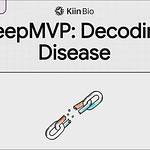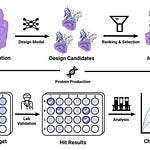Google DeepMind Introduces TxGemma: Efficient LLMs Revolutionizing Therapeutic Discovery
Google DeepMind has unveiled TxGemma, a suite of efficient, generalist large language models (LLMs) designed to accelerate therapeutic development. Built on Gemma-2 and fine-tuned using the Therapeutics Data Commons (TDC), TxGemma integrates predictive modelling, interactive reasoning, and workflow automation to address challenges across the drug discovery pipeline.
Key Innovations:
Efficient Generalist Models:
Outperforms state-of-the-art (SOTA) generalist models on 45/66 therapeutic tasks (e.g., toxicity prediction, clinical trial outcomes) and matches or beats specialist models on 50/66 tasks.
Available in three sizes (2B, 9B, 27B parameters), with larger models showing significant performance gains (e.g., 27B model achieves 30% median improvement over base Gemma-2 on TDC tasks).
Explainable Predictions:
TxGemma-Chat enables natural-language interactions, providing mechanistic reasoning for predictions (e.g., linking molecular structure to blood-brain barrier permeability).
Reduces reliance on "black-box" models by explaining results in biochemical terms, aiding hypothesis generation and educational applications.
Agentic Workflows:
Agentic-Tx, powered by Gemini 2.0, orchestrates multi-step tasks (e.g., molecule optimization) using 18 tools, including PubMed searches, SMILES analysis, and toxicity prediction.
Achieves SOTA on reasoning benchmarks: 9.8% improvement over o3-mini on Humanity’s Last Exam (Chemistry/Biology) and 5.6% gain on ChemBench.
Data Efficiency & Open Access:
Requires less training data for fine-tuning (e.g., clinical trial adverse event prediction) compared to base LLMs, critical for data-scarce applications.
Released as open models, enabling researchers to adapt TxGemma to proprietary datasets and validate performance in real-world settings.
Applications in Drug Discovery:
Predict drug-target interactions, pharmacokinetics, and clinical trial success.
Automate complex workflows (e.g., iteratively optimizing drug potency using Agentic-Tx).
Generate explanations for predictions, supporting medicinal chemistry decisions.
Facilitate educational dialogues about therapeutic mechanisms.
Limitations & Future Directions:
Performance not yet validated in wet-lab experiments; community-driven validation encouraged.
Plans to enhance few-shot learning and integrate structural data (e.g., 3D molecular representations).
Conclusion:
TxGemma bridges the gap between specialized AI and general-purpose LLMs, offering a versatile, efficient tool for therapeutic research. By combining predictive power with explainability and workflow automation, it empowers scientists to prioritize candidates, reduce costs, and accelerate the journey from discovery to clinic.
Explore TxGemma’s code and models on GitHub.











